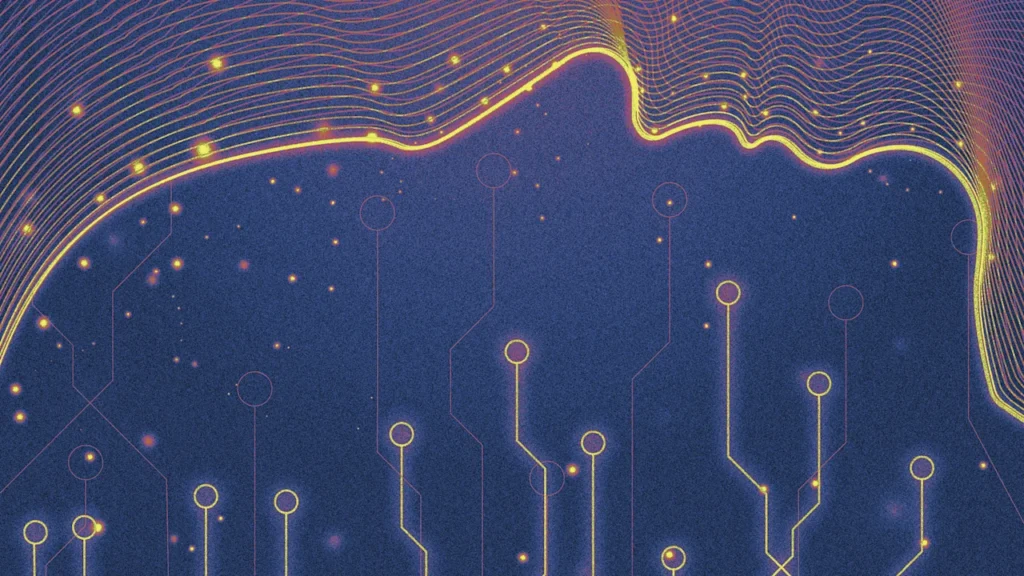
On September 30, OpenAI launched its new Sora social network, powered by its Sora 2 video generation model.
To call Sora’s launch successful is a gross understatement. Despite “invite only” access and restrictions outside North America, Sora exploded to over 1 million users in only five days. That’s faster than ChatGPT’s user base grew after its own record-setting launch.
Sora is a vertical video app, aping the interface and user experience (short clips, vertical swiping to select a new video, Likes and Shares) of every other app in its category. Except with Sora, there’s a key difference–every video on the app is explicitly and joyfully fake.
I resorted to begging colleagues, lurking on obscure Discord channels, and constantly refreshing my own Sora app in order to get an invite.
Finally, I got in and was able to try Sora firsthand. I’m convinced that it’s the perfect social network. It could take down TikTok. Here’s why.
Suspending disbelief
When you first sign into Sora, the app pops up a window warning you that “You are about to enter a creative world of AI-generated content. Some videos may depict people you recognize, but the actions and events shown are not real.”
The warning reminds me of the famous sign at the entrance to Disneyland. That sign reads “Here you leave today and enter the world of yesterday, tomorrow and fantasy.”
Disneyland’s sign is an invitation to suspend disbelief–to enter a world in which everything is kind of real, but is also explicitly curated and fabricated to delight you; a purified, enhanced reflection of reality. Sora feels similar.
After accepting the warning, you’re offered a blank box where you can type a description of any video you want to see.
When you enter text in the box, the Sora app uses the Sora 2 video generator (OpenAI has never been much for clear naming conventions) to make whatever you’ve asked for, complete with synchronized audio and even music.
Crucially, you can also begin to scroll through the AI creations of other users.
Delightful deepfakes
I didn’t expect that an app filled with bespoke deepfakes would be fun to use. Turns out, it is. Wildly so.
Many of Sora’s users’ creations are bizarre, engaging, and uproariously funny. In one popular video, a chicken hangs from a drone, flying over a drab British neighborhood while rapping about his predicament in a strong Cockney accent.
In another, Jesus and his disciples ride a roller coaster. He speaks in bible verses while the disciples scream in the background at every turn and drop.
Some of the best videos feature celebrities. In one, the ubiquitous 1980s painter Bob Ross stands in a Target score, furiously scribbling a mountain scene on a wall.
Angry employees approach him, saying professionally but assertively “Sir, you cannot draw on our wall”, to which Ross responds “I know, I’m trying to stop” while scribbling even faster.
“Then stop!” the employee commands. “Just more shadow, I promise,” Ross says as the employee grows more frustrated, yelling “No sir, give me the marker.”
“It needs a cloud…” Ross says plaintively as security arrives to escort him out of the building.
In another clip, Queen Elizabeth speaks at a press conference. Apparently having received a critical question, she says “You know what? I’m sick of you guys!” before cackling and flying straight up into the sky with a woosh.
An alarmed newscaster yells “She’s going up! Your majesty, come back!” as the crowd screams and the Queen ascends into the clouds.
No one asked for reality
Sora is far more fun to use than I expected. I hate vertical video apps, and have defiantly avoided spending any of my precious time on this planet scrolling through TikTok. Yet, I find myself returning to Sora again and again.
Why? For one thing, the app’s incredibly realistic video generation capabilities let users create anything they want. That unlocks a huge amount of pent up creativity–as well as a hefty dose of Monty Python-esque silliness.
But the appeal goes deeper than that. Social media used to be fun–a melange of quirky local news stories, cat videos, updates on the lives of people you vaguely remember from high school, and photos of your friends’ breakfasts.
Today, though, social networks are filled with highly-polished, aspirational content posted by brands, influencers, and the mini Kardashians in your own social circles.
Fire up Instagram or its ilk and you’re likely to see a stunning shot of a perfectly-styled, impossibly beautiful person sipping Negronis in Majorca, or a pic of your friend living it up at a fancy restaurant you can’t afford.
You’re unlikely to see footage of that same friend attempting (and failing) to troubleshoot her air fryer, or spending 45 minutes on hold with her insurance company. Everything is carefully selected and curated.
Increasingly, you’re also likely to see plenty of truly fake AI content masquerading as the real thing. More than 40% of Facebook content is now created by AI.
Using social media has thus become a dispiriting slog through machine-generated slop and aspirational images, where you’re constantly forced to question what’s real and what’s fake–or at least highly polished and edited.
It’s exhausting. No wonder that even teenagers–the most voracious users of social apps–are fed up. Pew reports that 48% of teens now believe that social media is bad for their mental health.
Sora sidesteps all this drudgery by ignoring authenticity altogether.
Everything is fake! There’s no need to question what you’re seeing–you can just enjoy the storytelling, the visuals, the delightful insanity and spectacle of it all.
It’s a weirdly liberating experience. Rather than feeling like wading in a cesspool of AI drek, using Sora feels like watching a very clever movie.
Movies are fake, after all. Yet people spend billions of hours enjoying them. And here, if you like something you see, you can leap in and make your own version of it with a simple prompt and the press of a button.
Turns out, people never wanted reality. Sora captures all the spectacle, drama, and storytelling that keeps people engaged with TikTok and Reels, but without any of the shame, exclusion, and need to constantly keep your digital guard up. Plus, you can tell any story you want on Sora, physics be damned!
It’s a seductive combination–fun, silliness, joy, and freedom from the limits of reality. No wonder people are already joining the network by the millions. TikTok and the other peddlers of depressing, soulless, obsessively curated semi-realities should be very, very afraid.



